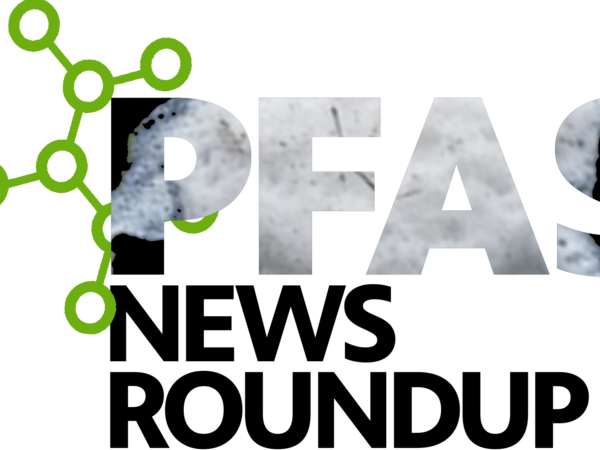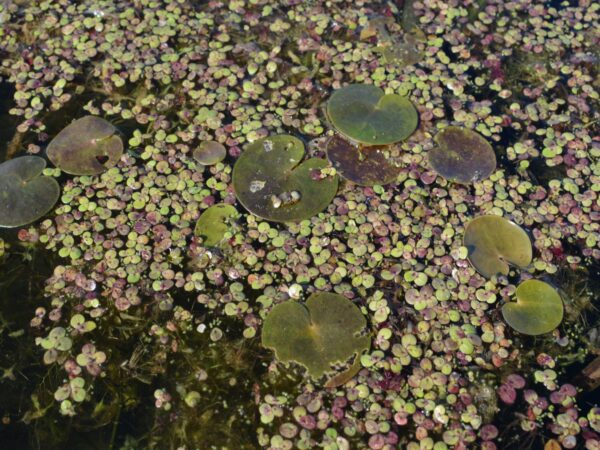
Great Lakes communities on both sides of the border have diversion and reclamation programs for plastics, hoping to keep the trash out of the lakes.
But how everyday people can deal with microscopic pieces of plastic is a more challenging question. Now a two-year-long study into washing machine filters in an Ontario community shows something can be done.
When we wash our clothes, they shed up to hundreds of thousands of microfibers – usually plastic or cotton. These fibers go down the drain to wastewater treatment plants, where up to 99% are caught in sludge but remain untreated. The remaining 1% flows directly into our waterways.
“Even a small percentage can amount to millions of fibers a day,” said Lisa Erdle, a University of Toronto researcher who led the project in Parry Sound, on the shores of Georgian Bay. “Plus, it’s common to use the sludge for fertilizer in Ontario and Great Lakes states.”
This means runoff from farmers’ fields is also a source of microplastic pollution in the lakes.

Filtrol washing machine filter (Image Credit: Wexco via Georgian Bay Forever)
Researchers don’t yet know the risks, but there is reason to be cautious because microplastics have been turning up in fish, birds and other aquatic animals. And that’s a problem because plastic does not provide the energy and nutrients these creatures need.
Another problem is that plastic is made from oil and includes many different petroleum-based ingredients, some of which are toxic. Additional ingredients in some plastics, such as polyvinyl chloride, can cause cancer, and phthalates — used to soften some types of plastics — can mimic the activity of hormones. These false hormones can cause unexpected changes in how cells grow and develop, possibly leading to disease. Plastic can also act like a sponge, soaking up pollution such as PCBs and the pesticide DDT.
“Non-plastic fibers, such as cotton, can also cause problems because of the chemicals applied to them,” said Erdle. “In some cases, cotton microfibers contain up to one-third of synthetic chemicals per weight.”
University of Toronto researchers, along with staff at Georgian Bay Forever, set out to test the ability of washing machine filters to capture microfibers before they enter the water. Lab results showed the filters could capture roughly 90% of microfibers, but they wanted to know what would happen in the real world. Would the filters be just as effective?
The study, in which 97 households installed the filters, showed the answer is yes. Erdle and her team tested water at the town’s wastewater treatment plant before and after the filters are installed.
They found a 41% reduction in both microplastic and cotton fibers in wastewater, a number that surprised them: “If the filters are 90% effective and roughly 10% of households in Parry Sound participated, we thought maybe we’d get a 9.9% reduction,” said Erdle.
She thinks the better-than-expected result might reflect changes in how people in the community now wash their clothes – washing them less frequently or in cold water, which releases fewer fibers. Erdle credits Georgian Bay Forever for raising awareness in Parry Sound about the problem fibers pose and offering solutions.
While the lint from the filters ends up in the regular garbage stream and hence in our landfills, at least it keeps it out of our water, said Erdle.
Georgian Bay Forever is now working on supporting Ontario Private Member’s Bill 279, introduced in the provincial legislature in April. The bill is designed to prohibit the sale of washing machines that are not equipped with microfibre filters. The bill has passed its first reading and the group is calling on the public to write their local Ontario Member of Provincial Parliament to voice their support.
“We have evidence these filters work. The next step is to get this legislation passed,” said Georgian Bay Forever project coordinator Brooke Harrison. “There is similar legislation on the table in France, the UK and in California. We need to make this easy for consumers.”
The washing machine filters the team used are commercially available in Canada and the U.S., and cost about $180 to $200.
Editor’s note: A lot of commenters on our original story asked how to get a filter. The one used in the Parry Sound study is from Filtrol. There’s also a Canadian company, Environmental Enhancements, that makes similar filters. Email the news director at nblakely (at) dptv.org if you know of more.
Catch more news at Great Lakes Now:
Plastic Impact: Canada launches multi-year study of microplastics in water and soil
Algae may vacuum microplastics, but also indicates greater health threat
Featured image: Parry Sound resident and filter participant, Emily Fells. Photo by Cassie Weston
1 Comment
-
I get to 100% reduction just by only buying natural fiber fabrics




